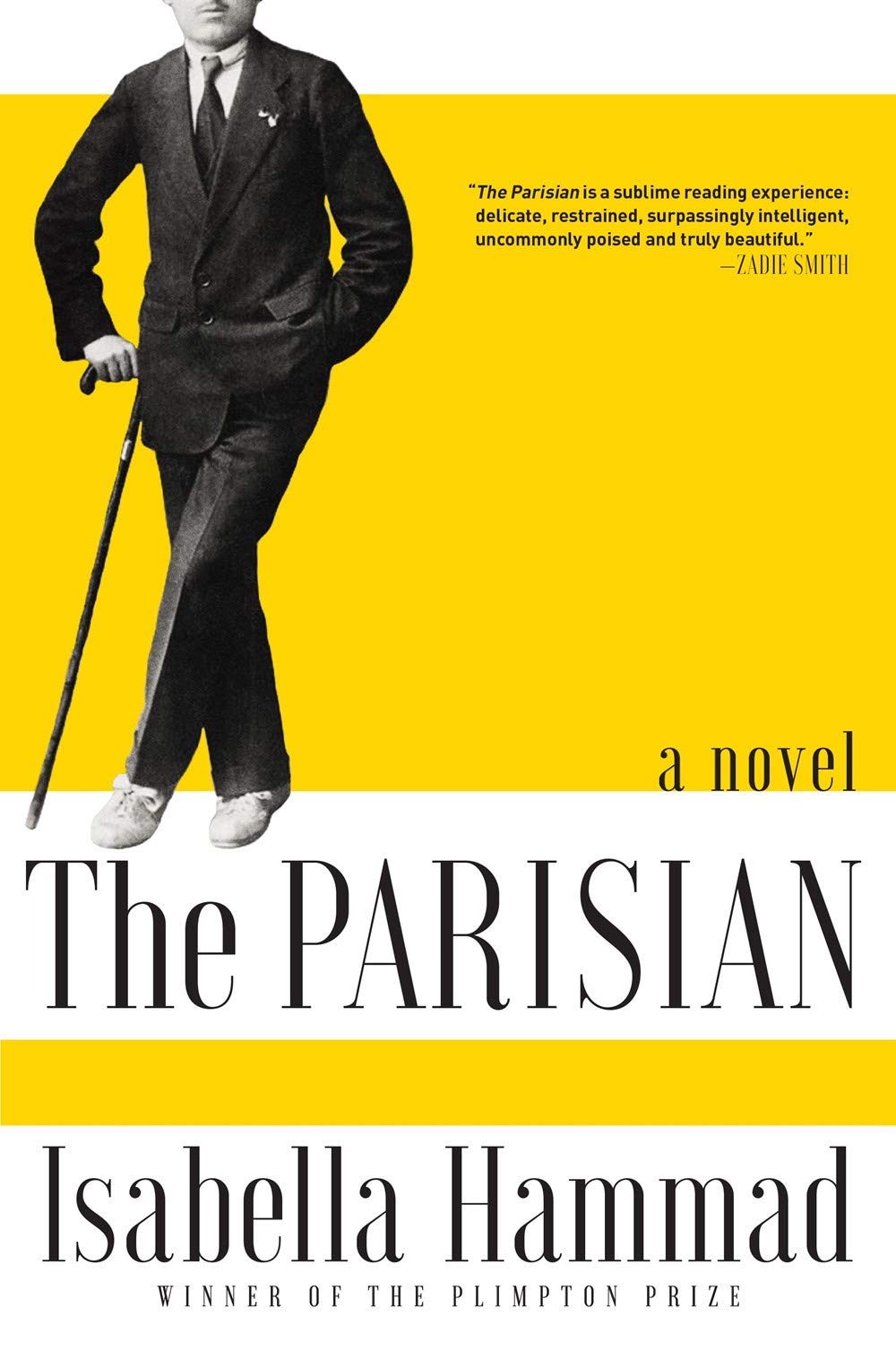There is a certain kind of nonfiction one can only really access in a novel. Isabella Hammad’s The Parisian, a debut novel that lives up to its ambitions, belongs in that category. Hammad, born in London to a British mother and Palestinian father, uses the historical novel partly as an inquiry into the fragmented nature of Palestinian identity.
The story is of the coming of age of Midhat Kamal, the son of a successful Nablus merchant who, as the clouds of the First World War gather, heads to Montpellier, France, to study medicine. From the beginning, the question of what exactly Midhat is confronts the young Nabulsi. At a wedding, a friend of his host family gives Midhat a cartoonish greeting, “Le jeune Turc!” “Actually,” corrects his host’s daughter, Jeannette, with whom Midhat would soon fall in love, “Monsieur Midhat would call himself a Palestinian Arab.” Midhat can’t help but contrast everything he sees and feels in France to what Nablus has pressed into him.
Midhat isn’t the only one studying the contrasts. He discovers his host, a professor at the university, has been “studying” him, as though he were a primitive prehuman whom these French intellectuals had a responsibility to civilize. Midhat storms out and, unbeknown to his father, who is funding this time abroad, spends the next few years studying the humanities in Paris, where he falls in with a group of Arab nationalist intellectuals. After a year in Paris, however, Midhat finds himself to have been the subject of his own humanization attempts: “He had fallen so easily into the compromise available in Paris, this type, by an embrace of otherness that at first he had admired in Faruq but which now appeared in his mind a skewed, performed version of what it was really like to be in a place but not of it, not to know it truly.”
Meanwhile, the Ottoman Empire has fallen, and while “the streets of Jerusalem had flooded with revelers, and the citizens danced and whistled,” in Nablus the reaction was of fear of a less-well-known empire replacing the Turks and of U.K. Foreign Secretary Arthur Balfour and his declaration. The Arab expats in Paris began debating what they were now.
“The Jews are good agriculturalists. You know? They might be a boost to the local economy.”
“That’s because you’re in Damascus, Raja. You’re not Palestinian.”
“We are all Syrians. None of this ‘Palestinian, mish Palestinian.’ We are united, we will be one nation.”
It is amid this upheaval that Midhat returns to Nablus. His hometown is shielded from the fervor sweeping Jerusalem, which “possessed a kind of chemical power to bring out” the fanaticism even in academics that “might otherwise lie dormant.” The fluidity of nationalism was dizzying. Suddenly, an entire region’s Arab inhabitants were trying to figure out what they were.
In 1920, a mutual friend brings exciting news about Faisal I, the Arab leader: “I think Faisal is the king.” To which Midhat responds, “King of what?”

They find a newspaper that answers the question: Faisal is king of Syria. To this, Midhat wonders aloud, “Does it say where Syria is?”
Through all this, however, there is never a doubt about the Nabulsis’ Palestinian identity, no matter where the final maps are drawn. Midhat settles into a Nabulsi life — he marries the well-regarded Fatima Hammad, runs a textile shop, raises kids. But now he can’t help feeling the reverse of what he felt in France. He cannot quite hide his fashion, his cosmopolitan mannerisms, his European aloofness. He is known as “the Parisian,” and alienation sets in. Suspicion is everywhere. “The finger leveled at the enemy swung inexorably round to the apostate nearer by, and by ‘apostate’ one meant any neighbor who might be considered wanting in ideological zeal.” His cousin is radicalized at an anti-Jewish riot. Midhat’s business partner is a Samaritan. Their shop is hit by arsonists. “It was not as though one could take a pointer to the vandals and show them that in the annals of Greek and Aramaic the Israelites had splintered from the Samaritans as far back as the time of Moses. To a dispossessed farmer they were all the same, all ‘Jews.’”
Midhat plays the role of Nabulsi husband and father with alternating certitude and doubt, even causing a temporary insanity during which he “tried to summon one of his four ideas of himself that he had had only a few moments ago” in futility. “All he had left was this strange cut-out. He was a likeness in reverse. He was a cameo.”
As a distinctly Palestinian national identity grew stronger, Midhat struggled. “To be a Parisian in Nablus was to be out of step with the times, locked in an old colonial formula where subjects imitated masters as if in the seams of their old garments they hoped to find some dust of power left trapped.” Yet Midhat now knows what he wants: “There had been times in his life when he thought the need for them was illusory, this group of people, living in the same place, tied by their names and inherited stories. But if that was illusory, what was real? Without them, he was a body floating in the air.”
Midhat’s pursuit of fulfillment not in Arab radicalism but in Arab life is unexpectedly inspirational, and whether he will find it lends the book a propulsion that is equally surprising, though not quite as surprising as the wisdom displayed by the 27-year-old Isabella Hammad.
Seth Mandel is executive editor of the Washington Examiner magazine.
